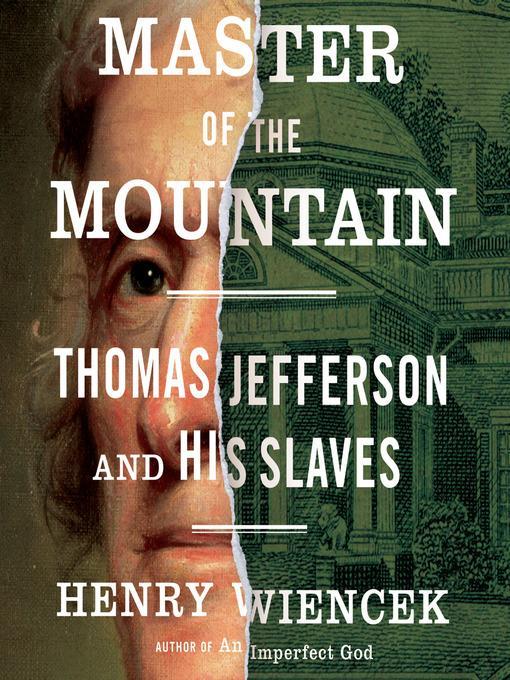
Master of the Mountain
Thomas Jefferson and His Slaves
فرمت کتاب
audiobook
تاریخ انتشار
2012
Lexile Score
1260
Reading Level
9-12
نویسنده
Peter Sloterdijkنویسنده
Gerhard Richterنویسنده
Peter Sloterdijkنویسنده
Gerhard Richterنویسنده
Brian Holsoppleناشر
HighBridgeشابک
9781611749908
کتاب های مرتبط
- اطلاعات
- نقد و بررسی
- دیدگاه کاربران
نقد و بررسی

Starred review from May 28, 2012
That the author of the Declaration of Independence owned slaves, likely fathered several children with a slave, and used slaves as collateral to borrow funds to build Monticello is widely acknowledged. Historians often explain this paradox by claiming Jefferson was powerless to change the system, accusing those who now criticize Jefferson of “presentism.” Yet NBCC Award–winning historian Wiencek (The Hairstons: An American Family in Black and White) reveals that many of Jefferson’s contemporaries, such as Quaker plantation owners in the 1770s and a prominent Virginian, Edward Coles, in 1819, freed their slaves. Coles begged Jefferson to lend his voice to the antislavery movement, as did fellow revolutionaries such as Lafayette and Thomas Paine. But, Wiencek says that the founder who referred to blacks as “degraded and different” with “no place in our country,” had a “fundamental belief in the righteousness of his power.” Jefferson, asserts Wiencek, began to prevaricate about slavery after computing “the silent profit” of 4% per year from the birth of slave children. This meticulous account indicts not only Jefferson but modern apologists who wish to retain him as a moral standard of liberty. Wiencek’s vivid, detailed history casts a new slant on a complex man. 8 pages b&w illus. Agent: Howard Morhaim, Howard Morhaim Literary Agency.

April 15, 2013
Historian Wiencek (An Imperfect God) presents a revisionist study of Jefferson and his oversight of Monticello and other plantations, overturning the picture of the revolutionary as a reluctant slaveholder. Estate records and Jefferson's writings document his change of opinion on slavery, away from the emancipationist leanings of his youth, brought on by personal economic considerations. Heavily in debt at the end of the Revolutionary War, Jefferson made sweeping changes in the operation of his plantation to increase profitability. Not only did the slaves provide field labor, they engaged in nail making, tinsmithing, and other trades. They also served as collateral for loans Jefferson needed to expand the plantation. Furthermore, his estate bred slaves for the internal American slave market. Jefferson also distanced himself from abolitionists and adopted racist rhetoric to justify his actions. VERDICT Narrator Brian Holsopple does an excellent job. This audiobook provides a troubling aspect of a complex man and the skewed moral universe in which he lived; recommended to all listeners.--Stephen L. Hupp, West Virginia Univ. Parkersburg Lib.
Copyright 2013 Library Journal, LLC Used with permission.

























دیدگاه کاربران